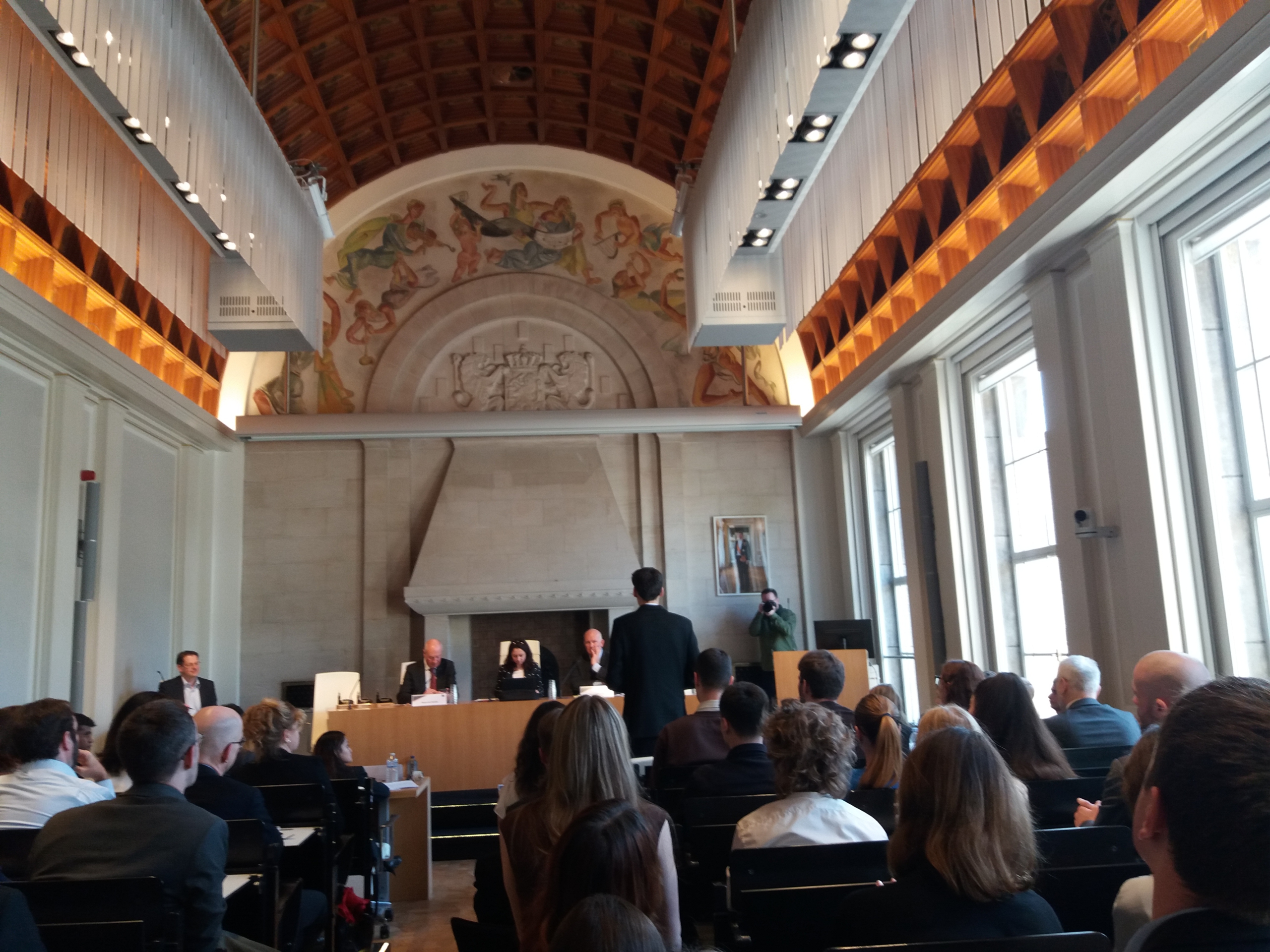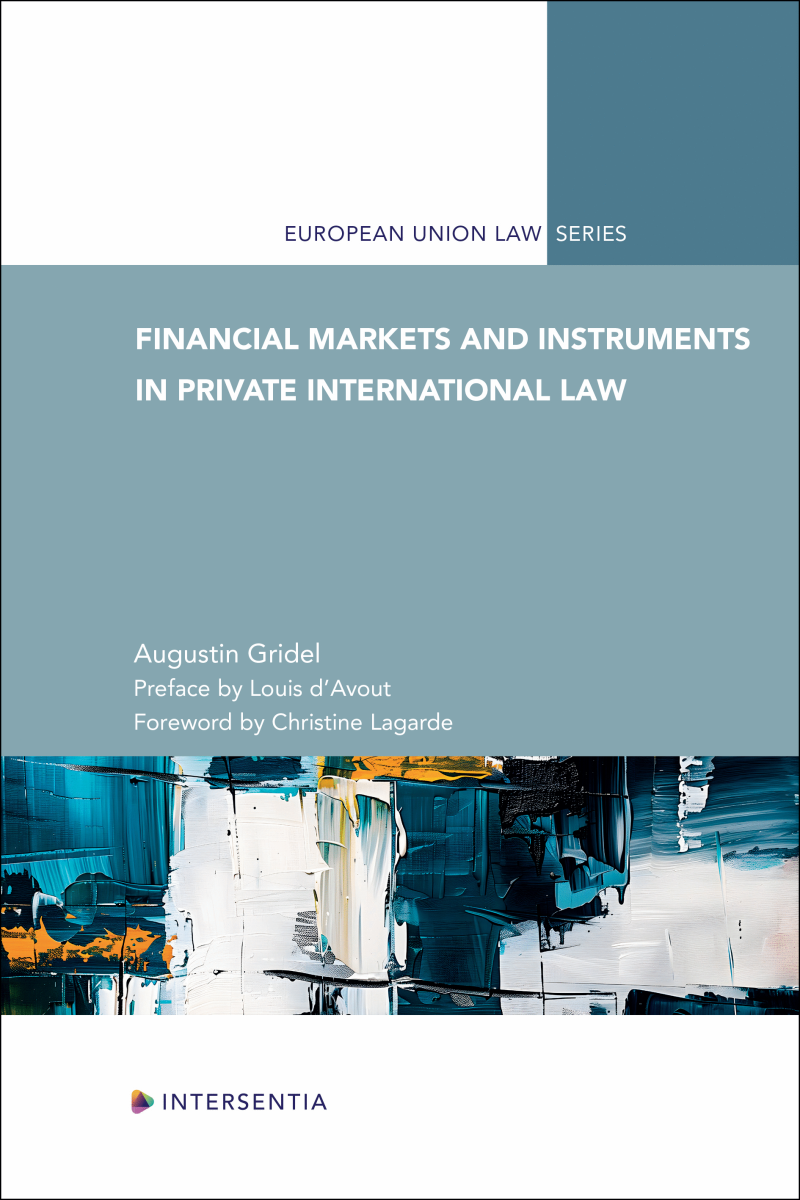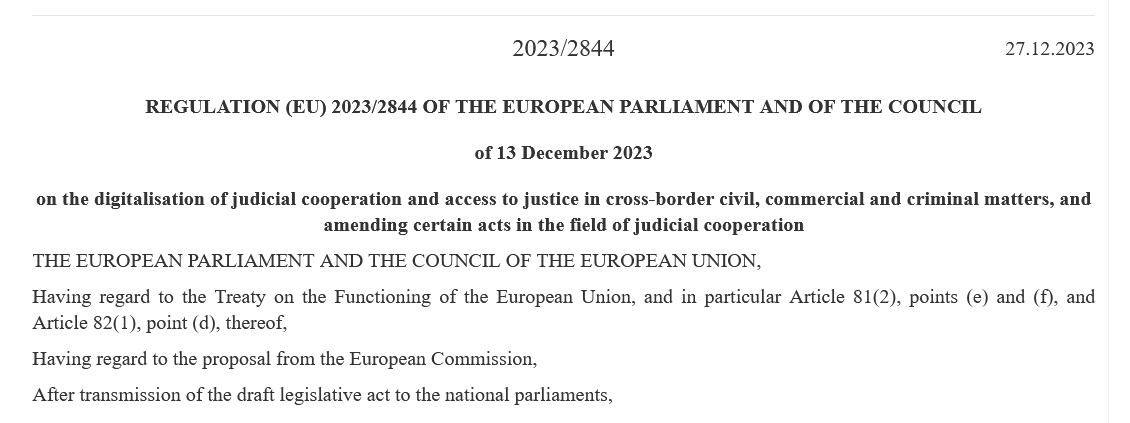Views
New EU Digitalisation Regulation: A Stepping Stone to Digitalised EU?
Author: Martina Ticic, assistant at the University of Rijeka, Faculty of Law and doctoral student funded by the Croatian Science Foundation (Hrvatska zaklada za znanost – HRZZ)
On 13 December 2023, two years after the first legislative proposal has been published, the new Regulation (EU) 2023/2844 of the European
Parliament and of the Council of 13 December 2023 on the digitalisation of judicial cooperation and access to justice in cross-border civil, commercial and criminal matters, and amending certain acts in the field of judicial cooperation (Digitalisation Regulation) has been adopted. While the process of digitalisation of judicial cooperation and cross-border procedures in the EU has been ongoing for some time already, the new Digitalisation Regulation represents a major step for advancing digitalisation practices in the EU.
Bahraini High Court on Choice of Court and Choice of Law Agreements
I. Introduction
It is widely recognized that choice of court and choice of law agreements are powerful tools for structuring and planning international dispute resolution. These agreements play an important role in “increasing legal certainty for the parties in cross-border transactions and reducing incentives for (the harmful version of) forum shopping.” (Alex Mills, Party Autonomy in Private International Law (CUP, 2018) p. 75). However, the realization of these objectives depends on the enforcement of the parties’ choice. Unfortunately, general practice in the MENA (North Africa and the Middle East) region shows that, with a few exceptions, the status quo is far from satisfactory. Choice-of-court agreements conferring jurisdiction on foreign courts are often disregarded or declared null and void. Similarly, the foreign law chosen as the governing law of a contract is often not applied because of the procedural status of foreign law as a matter of fact, the content of which must be ascertained by the party invoking its application. The recent judgment of the High Court of Bahrain (a first instance court in the Bahraini judicial system) in the Case No. 2/13276/2023/02 of 17 January 2024 is nothing but another example of this entrenched practice that can be observed in the vast majority of countries in the region.
U.S. Supreme Court Decides Great Lakes
On February 21, 2024, the U.S. Supreme Court handed down its decision in Great Lakes Insurance SE v. Raiders Retreat Realty Company, LLC.
The question presented was whether, under federal admiralty law, a choice-of-law clause in a maritime contract can be rendered unenforceable if enforcement is contrary to the “strong public policy” of the U.S. state whose law is displaced. In a unanimous opinion authored by Justice Kavanaugh, the Court concluded that the answer to this question was no. It held that choice-of-law provisions in maritime contracts are presumptively enforceable as a matter of federal maritime law. It further held that while there are narrow exceptions to this rule, state public policy is not one of them.
News
The Pax Moot teams solved the “impossible” case of SSF versus Telerel and the Watermelon companies
 The Ulrich Huber round of the Pax Moot competition ended on Friday in the Meuse-Rhine Euroregion, at the University of Maastricht to be precise.
The Ulrich Huber round of the Pax Moot competition ended on Friday in the Meuse-Rhine Euroregion, at the University of Maastricht to be precise.
During three fierce days 34 Moot teams from all over Europe and as far as Georgia, Kazakhstan, India, Singapore and Uzbekistan pleaded against each other. They argued about whether self-employed content moderators for social media companies could be considered employees; about how to locate the damage that consists of the stress and mental health harm suffered by these digital nomads; about whether a UK subsidiary of an Irish company could be considered to be domiciled in the EU; about whether the proceedings instituted by a foundation under the Dutch WAMCA should be characterised as contract or tort; about whether a settlement in front of a UK court could be recognised under the 2019 Hague Judgments Convention and much more. They relied on old and new case law, reports and legal scholarship.
At the end, the University of Ljubljana won the competition, with Jindal Law School as the runner-up. The other two teams that made it to the semi-finals were the Universities of Sofia and Paris-Saclay.
The prize for the best memorials went to ESADE Law School, with the University of Ghent in second place, and Paris Dauphine and Sofia Universities in shared third places.
Jana Ušen won the best pleader’s award, followed by Brin Smole, both of Ljubljana University. In the third position was Joshua Tan and in fourth Ong Xin Yan, both of Singapore Management University.
Under the inexhaustible leadership of Marta Pertegás, expect the Pax team to be back with a new case in October/November, to be pleaded in Sofia in roughly one year’s time. Pax Moot is co-funded b y the European Commission.
Reciprocity in the Recognition and Enforcement of Foreign Judgments: Two Recent Contributions
Reciprocity in the field of recognition and enforcement of foreign judgments has long been a subject of passionate debate. While some scholars question its desirability, others firmly defend it as a legitimate legal requirement. What remains undeniable is that the topic continues to spark intense discussion and scholarly interest.
A clear illustration of this ongoing debate is provided by two recent publications addressing the issue from different perspectives and jurisdictions.
The first is an enlightening open-access article by Eszter PAPP and Nobumichi TERAMURA, titled “Enforcing Singapore Judgments in Cambodia: Reciprocity Under the Loupe“. The paper explores the practical and legal challenges related to the enforcement of Singaporean money judgments in Cambodia, with a specific focus on the requirement of reciprocity. Read more
Out Now: Gridel, Financial Markets and Instruments in Private International Law. A European and French Perspective A European and French Perspective
The multiple-award-winning book by Augustin Gridel (Université de Lorraine), Marchés et instruments financiers en droit international privé (Bruylant 2023), has just been published in English under the title Financial Markets and Instruments in Private International Law. A European and French Perspective. It features a preface by Louis D’Avout and a foreword by Christine Lagarde.



